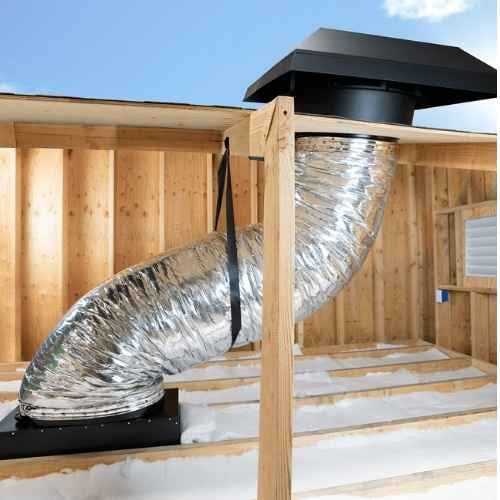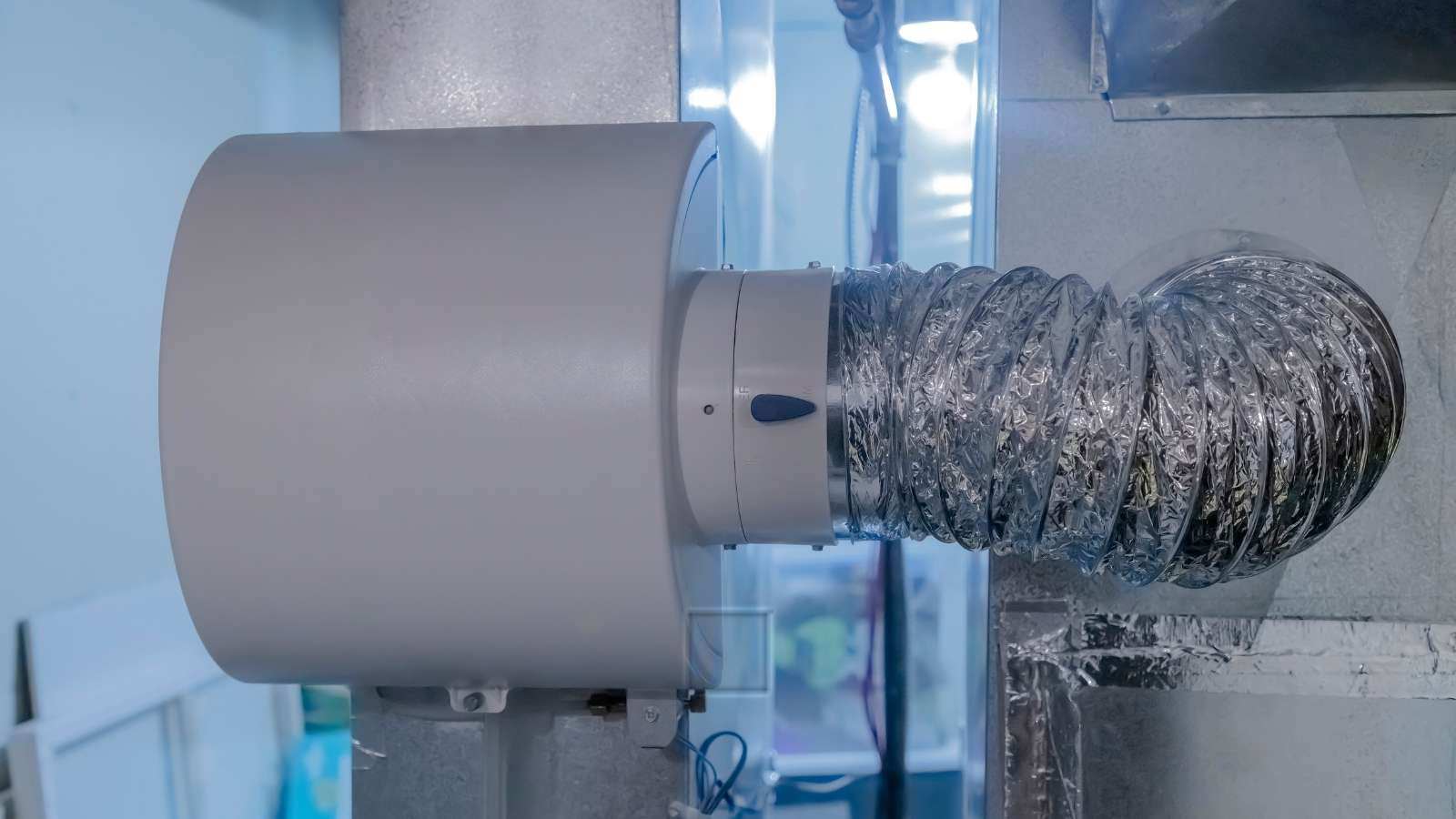How to Decide Whether to Use Your Whole House Fan or Air Conditioning?
Wondering if you should use your whole house fan during hot weather? We've got you covered with this guide that explains when and how to use it effectively.
Understand the differences between a whole house fan and air conditioning.
Before deciding whether to use your whole house fan or air conditioning, it's important to understand the differences between the two.
While air conditioning cools the air by removing heat and moisture, a whole house fan works by pulling cool air in from outside and pushing hot air out through the attic.
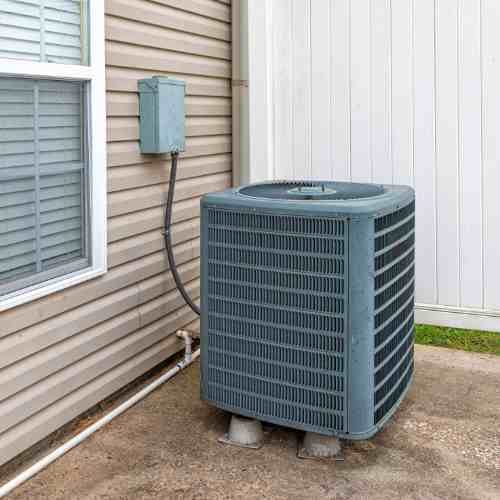
Whole house fans are typically more energy-efficient than air conditioning but may not be as effective in extremely hot and humid weather.
It's important to consider your specific climate and home insulation when deciding which option to use.
Consider the temperature and humidity levels in your area.
When deciding whether to use your whole house fan or air conditioning, it's important to consider the temperature and humidity levels in your area.
Whole house fans work best in areas with cooler temperatures and lower humidity, as they rely on the outside air to cool the home. In areas with high humidity, the fan may not be as effective in cooling the home and may even increase the humidity levels inside.
Air conditioning, on the other hand, can effectively cool the air in any climate, but may be more expensive to run in areas with high temperatures and humidity.
Evaluate the air quality in your home and surrounding area.
Before deciding whether to use your whole house fan or air conditioning, it's important to evaluate the air quality in your home and surrounding area.
If you live in an area with high levels of pollution or allergens, using a whole house fan may bring in these pollutants and worsen indoor air quality. In this case, air conditioning may be a better option as it filters and circulates the air within the home.
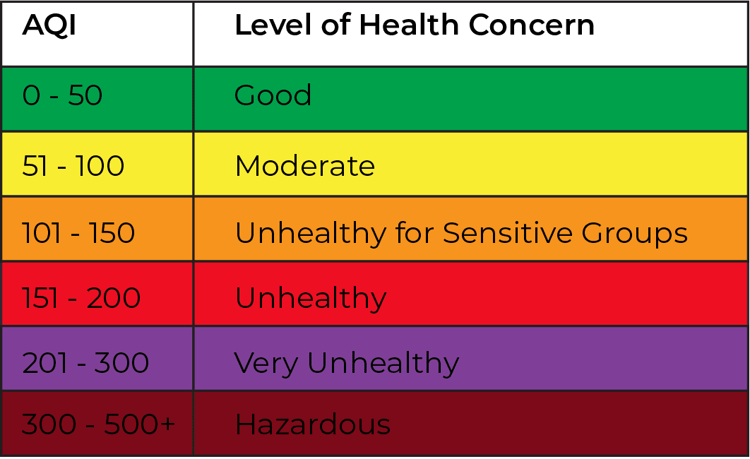
Source: SOUTHWEST OHIO AIR QUALITY AGENCY
Additionally, if anyone in your household has respiratory issues or allergies, it's important to consider their needs when deciding which cooling method to use.
Determine your personal comfort level and preferences.
When deciding whether to use your whole house fan or air conditioning, it's important to consider your personal comfort level and preferences.
Some people may prefer the natural breeze and fresh air provided by a whole house fan, while others may prefer the consistent and controlled temperature of air conditioning.
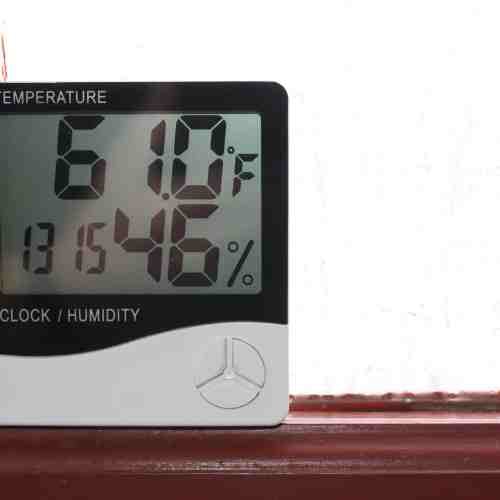
It's also important to consider the temperature and humidity levels outside, as well as the size and layout of your home, as these factors can impact the effectiveness of each cooling method.
Dew Point vs. Humidity
The dew point is the temperature the air needs to be cooled to (at constant pressure) in order to achieve a relative humidity (RH) of 100%. At this point the air cannot hold more water in the gas form. If the air were to be cooled even more, water vapor would have to come out of the atmosphere in the liquid form, usually as fog or precipitation.
The higher the dew point rises, the greater the amount of moisture in the air. This directly affects how "comfortable" it will feel outside. Many times, relative humidity can be misleading. For example, a temperature of 30 and a dew point of 30 will give you a relative humidity of 100%, but a temperature of 80 and a dew point of 60 produces a relative humidity of 50%. It would feel much more "humid" on the 80 degree day with 50% relative humidity than on the 30 degree day with a 100% relative humidity. This is because of the higher dew point.
So if you want a real judge of just how "dry" or "humid" it will feel outside, look at the dew point instead of the RH. The higher the dew point, the muggier it will feel.
General comfort levels USING DEW POINT that can be expected during the summer months:
- less than or equal to 55: dry and comfortable
- between 55 and 65: becoming "sticky" with muggy evenings
- greater than or equal to 65: lots of moisture in the air, becoming oppressive
Source: National Weather Service
Ultimately, the decision should be based on what works best for you and your household.
Use a combination of both systems for optimal results.
While some people may prefer one cooling method over the other, using a combination of both systems can provide optimal results.
During the cooler parts of the day and night, using a whole house fan can help circulate fresh air and cool down your home without the need for air conditioning.
However, during the hottest parts of the day or when humidity levels are high, air conditioning may be necessary to maintain a comfortable temperature.
By using both systems strategically, you can save energy and money while keeping your home cool and comfortable.

